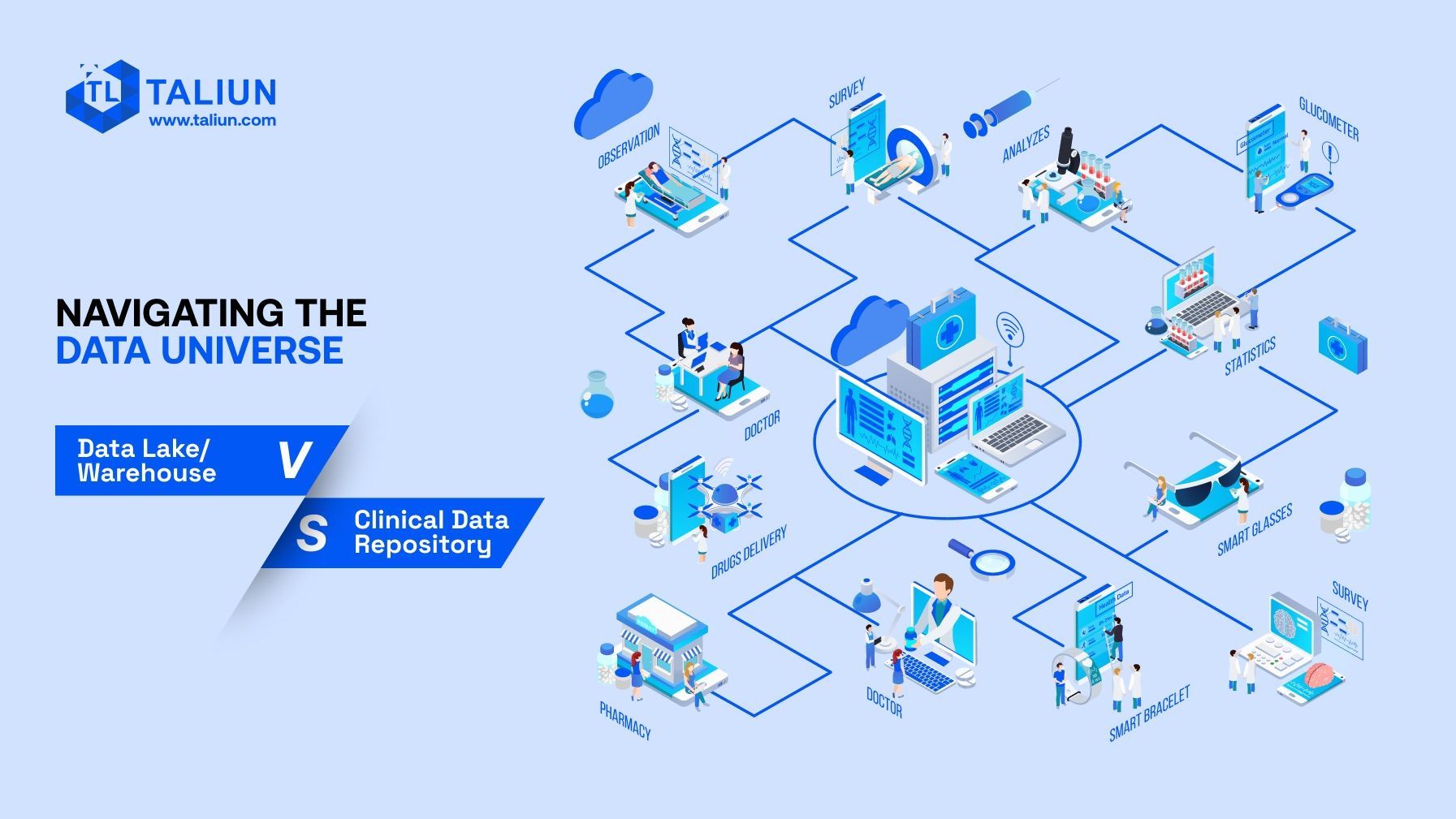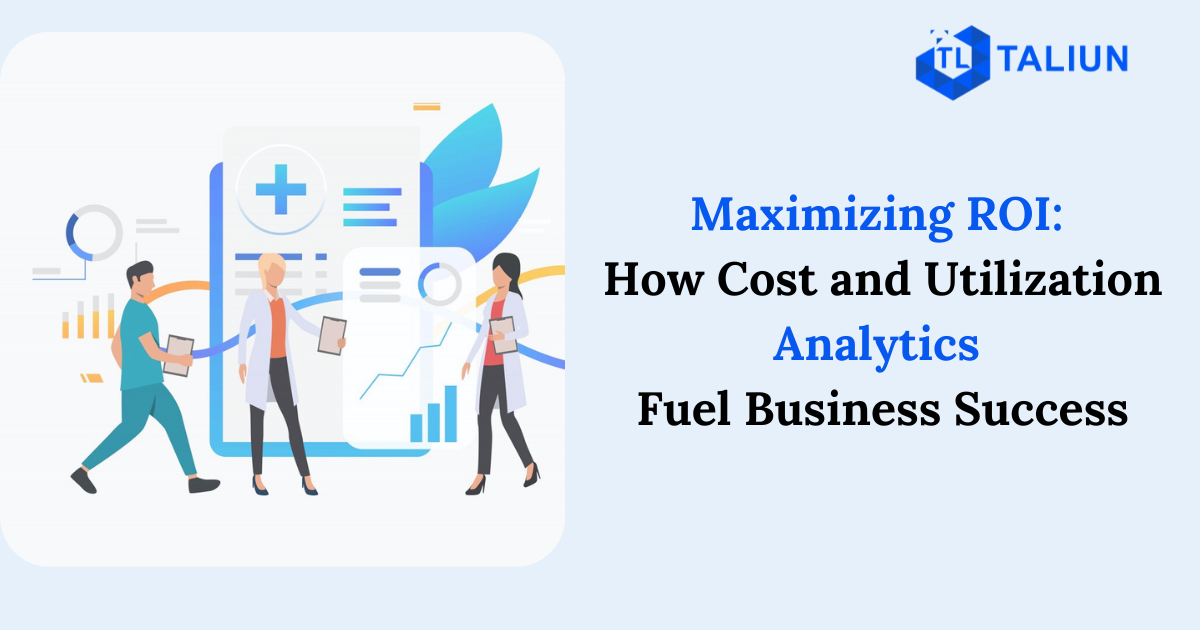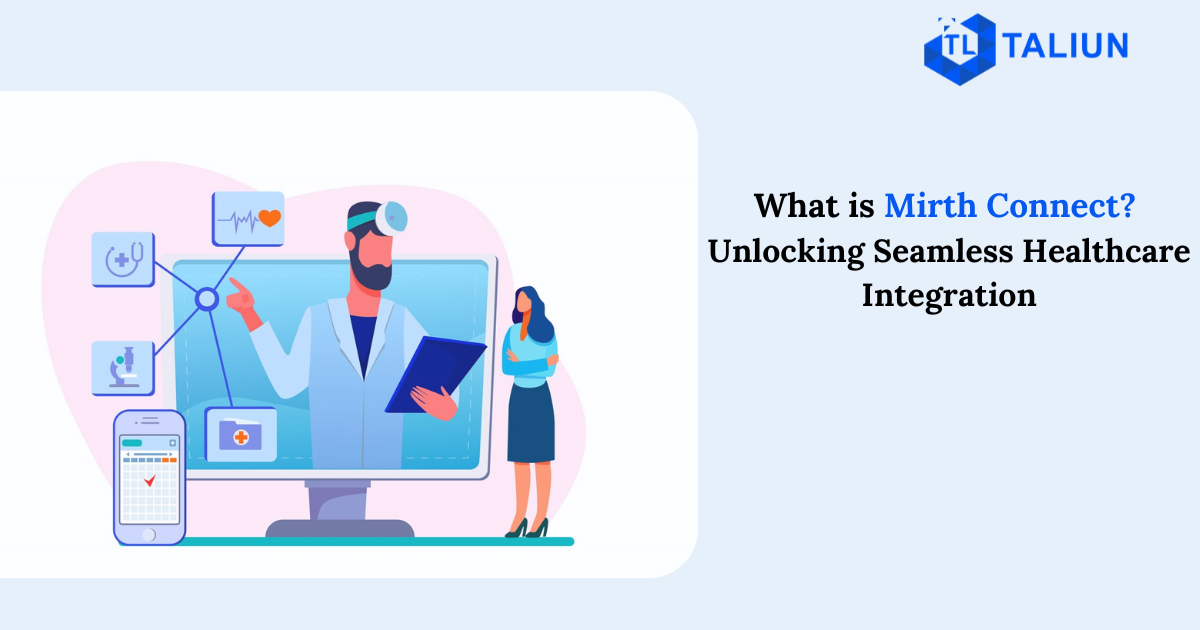Navigating the Data Universe: Data Lake/Warehouse vs. Clinical Data Repository

In the age of big data, understanding the various types of data storage and management systems is crucial, especially in the healthcare sector. Two common concepts are Data Lakes/Data Warehouses and Clinical Data Repositories (CDR). While they may seem similar at a glance, they serve distinct purposes and have unique characteristics. Let’s explore these differences to clarify their roles in data management.
Data Lake/Data Warehouse: The Broad Spectrum of Data Management
1. Definition and Purpose: Data Lakes and Data Warehouses are expansive data storage systems. A Data Lake stores raw data in its native format, including structured, semi-structured, and unstructured data. A Data Warehouse, on the other hand, is a system that aggregates structured data from various sources for analysis and reporting.
2. Data Structure and Processing: Data Lakes handle a vast array of data types without needing to structure the data first. This makes them highly adaptable but requires more processing power for data analysis. Data Warehouses deal with structured data, making them more efficient for specific queries and reports.
3. Use Cases: These systems are used across various industries for big data analytics, reporting, and decision-making. They are essential for businesses that require comprehensive data analysis and reporting capabilities.
4. Flexibility and Scalability: Data Lakes are highly flexible, allowing for storage of all types of data. They are also scalable, accommodating the growing volume of data. Data Warehouses are less flexible in terms of data types but are optimized for efficient data retrieval and analysis.
Clinical Data Repository: Focused on Healthcare Data
1. Definition and Purpose: A Clinical Data Repository is a database specifically designed to store healthcare-related data. It centralizes patient and clinical data, making it accessible for healthcare providers for patient care and treatment decisions.
2. Data Specificity and Compliance: CDRs focus exclusively on clinical data, including patient records, treatment history, and medical images. They must comply with healthcare regulations like HIPAA, ensuring data privacy and security.
3. Use Cases FDRs are used within the healthcare industry, primarily by hospitals, clinics, and other healthcare providers. They facilitate patient care management, medical research, and ensure continuity of care.
4. Interoperability and Real-time Access: A key feature of CDRs is their interoperability with other healthcare systems, ensuring seamless data exchange. They also provide real-time access to patient data, crucial for timely medical decisions.
Comparing and Contrasting: Key Differences
1. Scope of Application: Data Lakes/Warehouses are multi-industry, versatile systems for various data types and analytical needs. CDRs are specialized, healthcare-focused databases designed for patient data and medical information.
2. Data Diversity and Structure: Data Lakes/Warehouses can handle diverse data types, including unstructured data. CDRs primarily deal with structured, healthcare-specific data.
3. Regulatory Compliance: CDRs are subject to strict healthcare regulations, which is not always the case for Data Lakes/Warehouses.
4. Primary Users: Data Lakes/Warehouses are used by data scientists, business analysts, and IT professionals across many sectors. CDRs are primarily used by healthcare providers and medical researchers.
5. End Goals: The end goal of Data Lakes/Warehouses is to provide comprehensive data analysis and insight for business decision-making. CDRs aim to enhance patient care and treatment effectiveness.
Conclusion
Understanding the distinction between Data Lakes/Data Warehouses and Clinical Data Repositories is crucial, especially in a data-driven world. Each serves a unique purpose: while Data Lakes and Warehouses offer broad, multi-industry data management, CDRs provide focused and regulated management of clinical data. Recognizing these differences enables organizations and professionals to choose the right system for their specific data needs.




